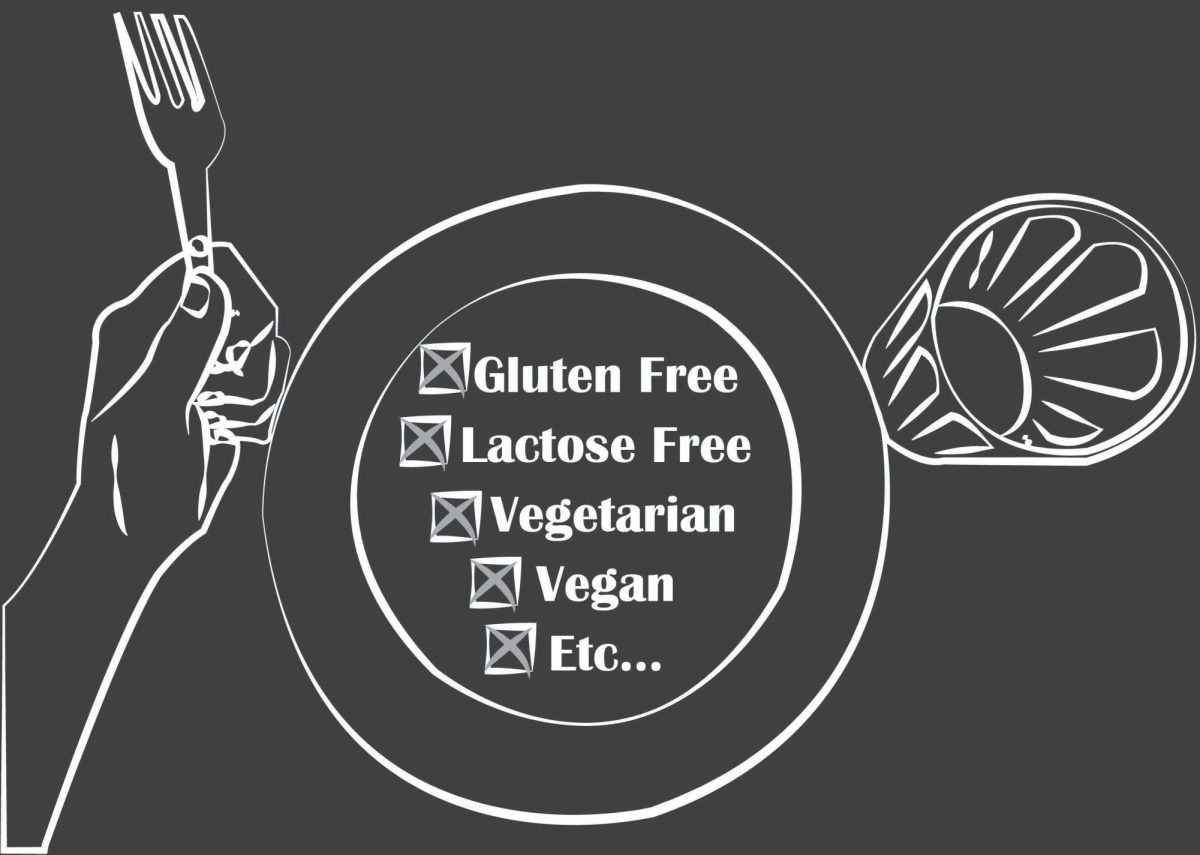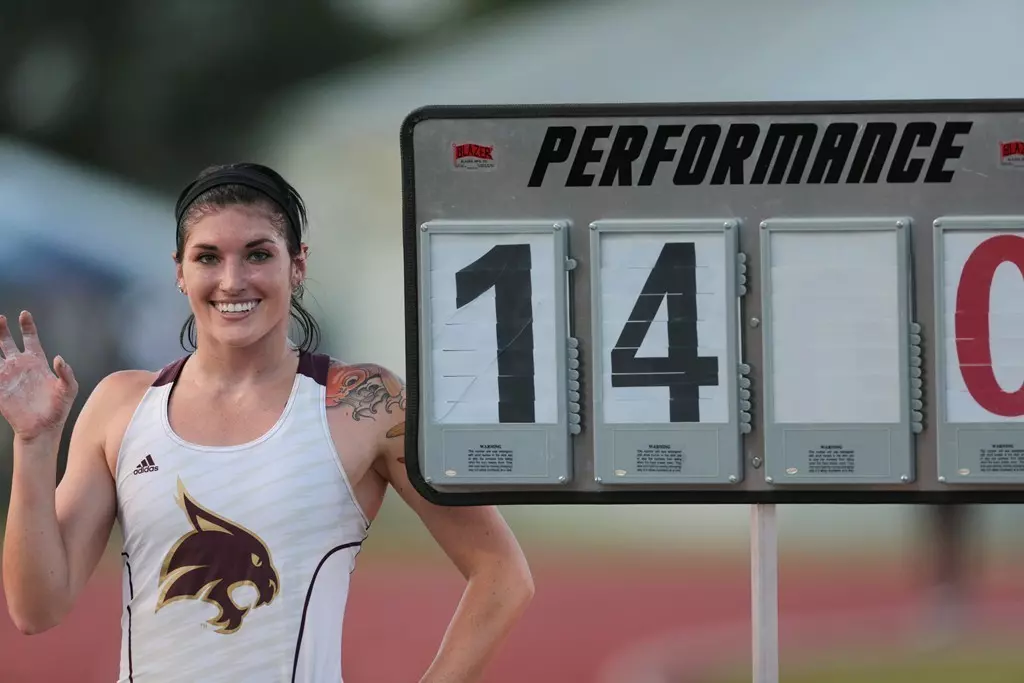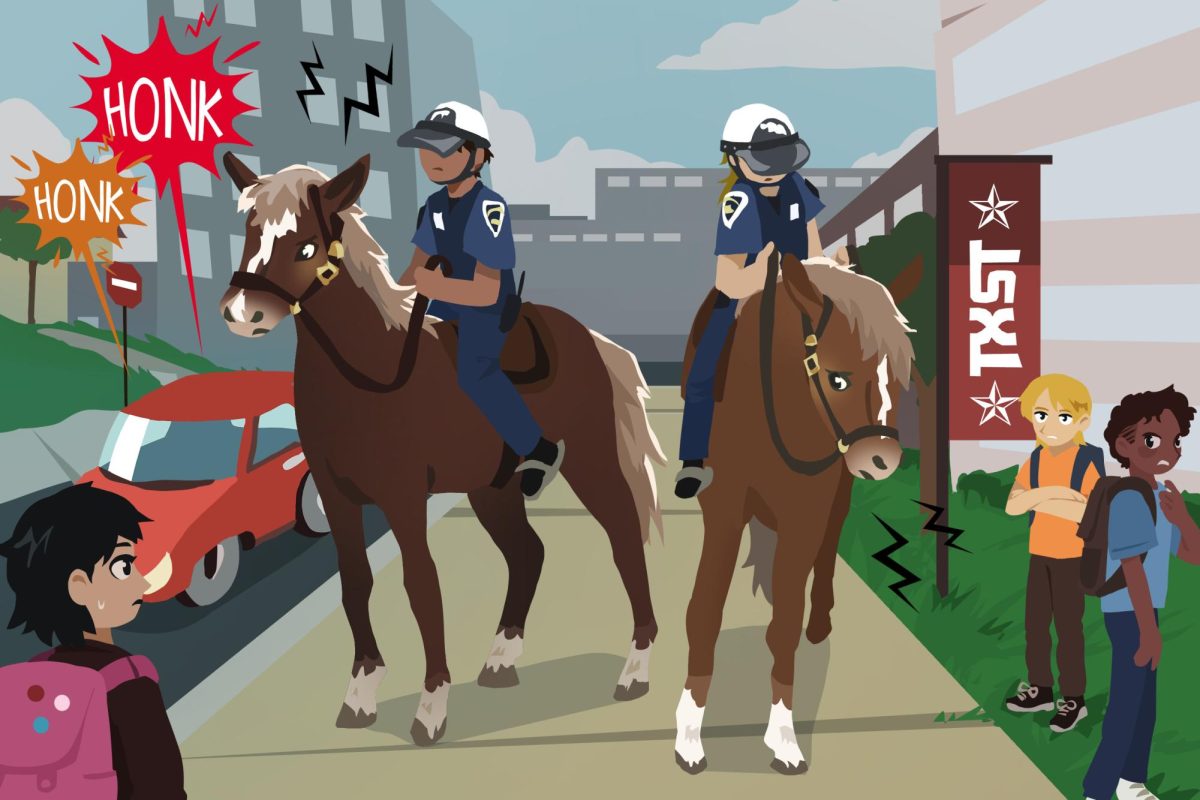Harris and Commons dining halls are rarely any student’s first choice for a quick meal on campus. It can be challenging for many students to find a meal that will satisfy their hunger, but it is even harder for those with dietary restrictions, such as being gluten-free or vegan.
There are often many reasons why someone lives a lifestyle requiring them to add or remove certain foods from their diets. Some students may have medical conditions such as celiac disease or diabetes. However, many restrictions could be a personal choice to optimize one’s health.
Though Texas State tries to have options for students, more can be done. Dining halls must prioritize adding more variety to menus and work toward accommodating as many dietary restrictions as possible.
All Texas State students who live on campus are required to have a meal plan. There are four different meal plans: bronze with 120 meal swipes, silver with 150, gold with 210 and platinum with unlimited swipes. Students are also required to add $300-$500 of dining dollars to their plan, as stated on the Dine On Campus website.
“The reason [meal plans are required] is that those students don’t have a kitchen,” Chartwells Director of Marketing and Guest Experience Whitney Villarreal said. “It’s easier for them to be able to get that meal plan and get those meals on campus. They may not have the transportation to get off campus to go get food.”
Despite the benefits, meal plans can get incredibly pricey, and it’s unfair for students with dietary restrictions to pay that much money and not be able to eat the food served. Jonathan Sera, a nursing sophomore, said having a meal plan is often inconvenient because he is vegan.
“It’s such a struggle to live on campus, not have a kitchen, not have money to buy my own groceries, but be forced to have a meal plan that doesn’t really accommodate for me as much as it should,” Sera said.
One major issue that the university must address is the need for more variety in meals offered to those with specific dietary needs. While students who do not follow dietary restrictions have an overabundance of options, those who are restricted have to stick to the same meals over and over again.
Sera, who is vegan for personal reasons rather than health reasons, said he has considered going back to eating regularly due to being forced to eat the same meals repeatedly.
“There tends to be at least one vegan option at every restaurant on campus, but I definitely think it’s something they need to improve,” Sera said. “If there’s a menu with 30 items, but I can only eat one thing, it restricts me a lot, and it leads to me having to repeat a lot of meals.”
While there are areas in which Texas State could improve, most students simply need to do more to be sure dining hall meals meet their needs.
Albert Trujillo, senior executive chef at Texas State, said many students don’t know how to make their dietary needs known. He recommends that students take the time to look at the Dine On Campus app before each meal to see if they can eat any of the options. From there, he is willing to take the time to talk to each student individually about their needs.
“We’re on a constant communication basis with the students that have severe allergens,” Trujillo said. “As soon as you feel that you’re not able to have a meal, we can start the process of connecting you with the chef that’s at the dining hall closest to you.”
Students should not be afraid to speak up about their needs. The dining hall staff is always willing to help and will do their best to accommodate students whichever way they can.
Improvements can always be made; in this case, more options must be available to students.
-Rhian Davis is a journalism sophomore
The University Star welcomes Letters to the Editor from its readers. All submissions are reviewed and considered by the Editor-in-Chief and Opinions Editor for publication. Not all letters are guaranteed for publication.































